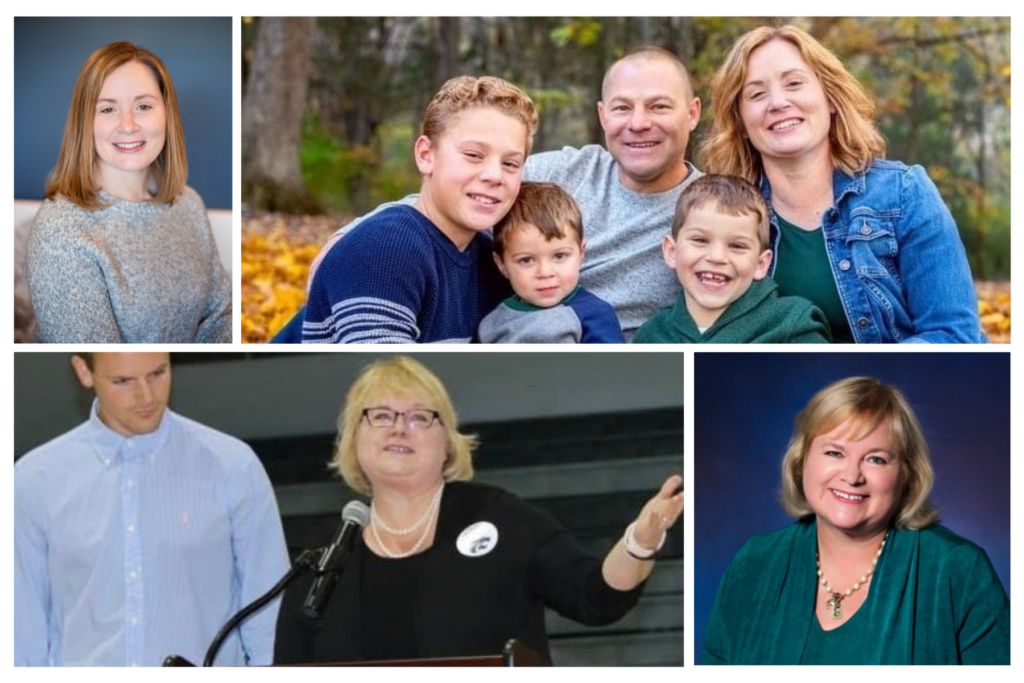
In Williamson County, this election cycle is the first time school board candidates can run with a party label next to their name, signaling they’re a Democrat or Republican. For incumbent Nancy Garrett, the choice was clear: She picked neither.
Garrett partly attributes that decision to her Southern Baptist roots.
“There was a song we used to sing, ‘There is a line I will not cross,’ and that’s just my line,” says Garrett, who’s running for the District 12 school board seat. “I respect parties, but I want to be part of the nonpartisan tradition of our district.”
Garrett is among eight candidates running as independents in Williamson County’s first partisan school board races, along with 10 Republicans and two Democrats. Some candidates identify as true independents, but others are using the label to protest partisanship seeping into the school system. They believe a partisan school board will do more harm than good, and hope an independent label will counteract some of the inevitable partisanship.
“We don’t have to stay in these boxes. You know, it’s going to take everybody working together to move forward in what has been a contentious and difficult few years,” Garrett says.
Primary elections for candidates running as Republican and Democratic are coming up on May 3. (Early voting is currently underway.) Those running as independents will only appear on the general election ballot in August.
It’s been an intense time to run for the school board. Schools at large are seen as the latest battleground between conservatives and liberals. In Williamson County, their meetings have been derailed by heated brawls around COVID measures and what to teach kids about race and history.
It’s partly why some parents and lawmakers pushed for party labels in the first place. They say it’ll help voters make an informed decision on which candidate to elect, possibly easing tensions between parents and their representatives.
But some experts believe partisan school boards will further division.
“My big concern here is that by making school board races explicitly partisan, we’re starting the governing process from a place of conflict,” says Michael Ford, the associate professor of public administration at the University of Wisconsin.
For the past decade, Ford has studied school board governance. His works found that there’s a clear connection between school board conflict and overall school district performance, which is why partisanship is concerning, Ford adds.
“I like to look at the state level and just look at some of the dysfunction we’ve seen in state legislatures across the country,” he says.
Ford adds that partisan school boards are a relatively new phenomenon, so the verdict is still out on their effectiveness, but it will be a significant structural change.
That’s already becoming apparent in this election cycle.
“I know running independent means I’m going to be attacked as being a Democrat,” says Tiffany Eccles, who’s running for District 2 seat. “That’s going to be the assumption because I’m running against a Republican.”
Eccles is the only candidate running against Republican incumbent Dan Cash, who’s been on the board for eight years. Although many parents were pleased to see Eccles refuse to pick a side, she admits not everyone has been convinced of her intentions.
Eccles says she’s voted for both parties in the past, but the main reason she chose not to pick a side is to send a message.
“I just think the partisanship that we’ve seen on the board for the last couple of years — people doing things in line with their party — are really kind of what’s broken with the school board right now,” Eccles says.
Garrett has also seen the ways her opponents have a leg up in the race, through the backing of a major political party.
“They get a walk list, they get support, campaign support and training support from their parties. They may get donations from their parties, they may get help with vendors. I don’t have any of that,” she says. “But I don’t that as a huge deficit for me. I can figure all this out.”
Garrett adds that she’s also been affirmed by the number of new supporters she’s gained by not choosing a party label.
Although she leaned toward the Republican party in recent years, Garrett says she is trying to make a statement, and that she won’t let her political views get in the way of making the best decisions for students. Garrett adds that she takes inspiration from her personal hero, Dolly Parton, who she says always finds a way to bring people together and get things done.
“I wouldn’t ever want any family to come to me and say, ‘I have this issue and because this party feels this way, then I’m concerned how my school board rep will respond to this,’ ” she says.

